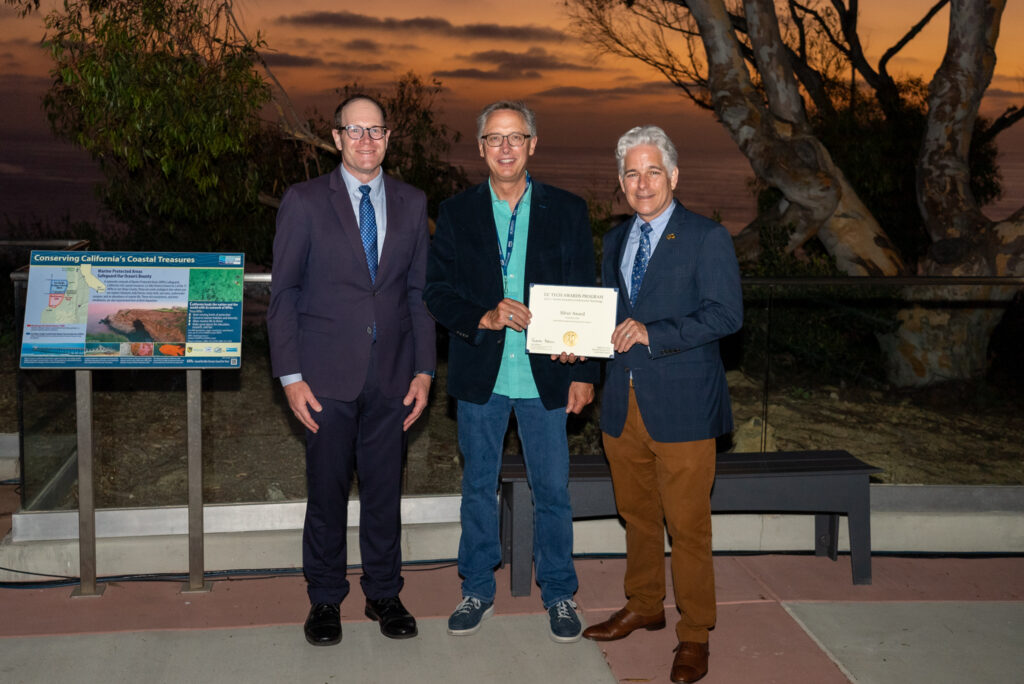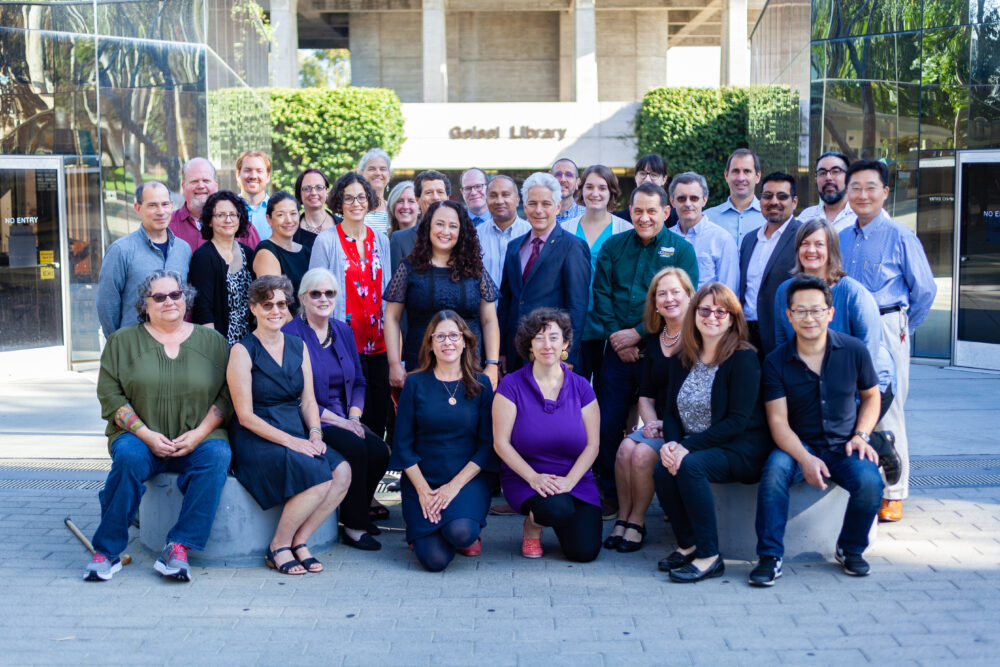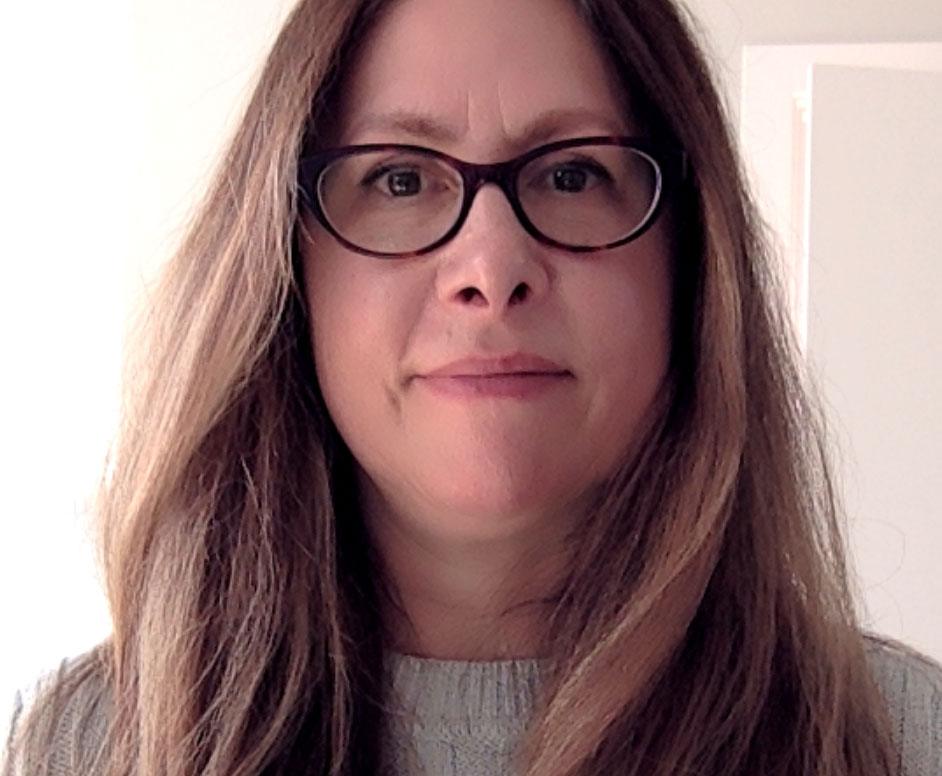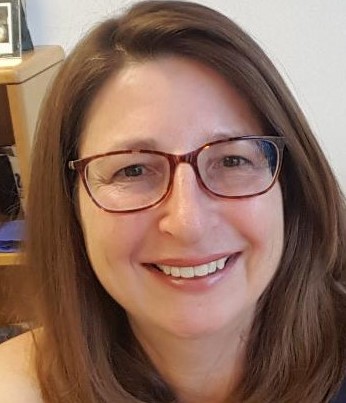By Lena Zentall and Christine Barone. This summer, the Systemwide Transforming UC Library Services (aka SILS*) team received the UC Tech Larry L. Sautter Innovation in Information Technology Silver Award. The story of their success provides a window into best-practices in change-management at-scale, while revealing important principles behind digital transformation and change-management in general.
A year ago, in the summer of 2021, the UC Libraries implemented a means of connecting all 10 campus libraries and the university’s central California Digital Library using common software. In doing so, they completed a massive, four-year project and achieved their two-part objective, both a successful implementation, as well as a process that was collaborative, inclusive and beneficial to a diverse group of people and institutions.
“One of the biggest projects the UC libraries have ever come together to do“
Lena Zentall
Associate Director, Discovery & Delivery
California Digital Library
The team’s project co-managers, Lena Zentall & Christine Barone, share more about the process that resulted in building a team with the attitude, governance and trust to begin to take on the transformation that is now behind them, as well as opportunities to innovate going forward.
Both the “What” and the “How”
While a central goal was to transform the libraries and ensure that they worked off a single system with improved efficiencies and effectiveness, what was equally important to all parties, from UC leadership to each member of our team, was that the process itself would be highly collaborative.
Impeccable Leadership
“We implemented a software product, which is not necessarily the biggest achievement. Rather…getting all campuses to agree to a shared system is what was revolutionary.”
We implemented a software product, which is not necessarily the biggest achievement. Rather, I would say that getting all campuses to give up control of their local system and agree to a shared system is what was revolutionary. We credit this “revolution” to library leadership for understanding the opportunity and embracing this massive change.
We had amazing leaders at all levels, both guiding the project and leading the many groups. For me, this model of excellence was a big take-away and lesson-learned. They were deeply thoughtful, caring and respectful and took the time and effort needed to listen. As a result of their expert guidance, people worked hard – they gave it their all. With a large change management initiative such as this, with hundreds of people with many others affected, there are many moving parts. It is important to understand issues and fully address concerns. Our leaders rose to the occasion. Any time a team escalated an issue, it was addressed immediately. Further, by being heard, people felt a greater sense of ownership and therefore committed themselves fully. With this many people and perspectives (300 individuals across 11 locations), having leaders who can create unity was critical.
What does listening look like?
“Giving a voice to concerns.”
Before each of the four phases of the project, my project co-manager, Christine Barone, and I would do what we called a “pre-mortem,” to proactively address risks and challenges up front. To that end, and knowing that change can breed fear, we worked to surface concerns, as well as “preconceptions” – an idea from the past that might influence a new circumstance. We would initiate discussions based on prompts such as, “Let’s pretend the project failed. What went wrong?” In this manner, team members could voice their thoughts and understand where they could manage risks and assumptions, but also walk through negative scenarios in a way that would help the team avoid mistakes. Allowing people to talk through their concerns in a receptive environment, and in fact, share important knowledge/experience from the past, in this manner built trust and was critical to our success.

The role of governance?
The team created a solid governance structure that supported our goal of a collaborative process. This included thoughtfully considering team composition, a meeting cadence and an equitable decision-making process that empowered front-line staff. Like the leadership style and culture of listening, the governance structure empowered people so that decisions came from the group vs being based on seniority.
In accordance with UC values, we developed principles (see this UC Libraries Principles PDF link to learn more) to guide the project at each phase and ensure shared decision making. These principles also include transparency and open-communications among team members. For this reason, to this day, our governance and decision-making is available on an Atlassian wiki, for everybody in the world to see: https://uc-sils.atlassian.net/wiki/spaces/UCSILS/overview.
In these ways, governance went a long way toward building trust. Nothing was being done without others knowing about it. People felt included and/or aware. A lot of thought went into how decisions are made and communications around the results. This was the most challenging, but the most rewarding aspect of the project in many ways.
What tools did you use?
We used an Atlassian-Confluence wiki, now available as an asset that we share with all who care to see it. (See the UC Library Systemwide Integrated Library Service – SILS – Workspace.) This was based on the success and structure of the California State Universities (CSU’s) instance a few years before us. We appreciated their transparency in decision-making so we borrowed their wiki design. Further, with only two project managers, we realized we did not have time to reinvent processes and wanted to capitalize on the proven success of others.
The result?
“We did this together and people and teams came out of it stronger and positive about the future.”
We met our goal and we won hearts and minds along the way. The project was intended to be highly collaborative in order to ensure that each organization and each individual voice played a role in the end-result. Many team members expressed their gratitude for the opportunity to work seamlessly alongside so many of their UC colleagues – it was a high point of the project for many of us, particularly during the difficult time of the pandemic. The project offered growth opportunities for members who took on leadership roles or participated in new areas.
It demonstrated once again that UC libraries across the state can be successful working together. We did this together and people and teams came out of it stronger and positive about the future. It provided a boost of confidence for future projects and endeavors.
What’s next?
Now that the implementation phase is complete, we can start to use the new product for another of its intended purposes – process improvement and innovation.
Thanks to a project that resulted in a culture of trust and confidence, we are confident in our ability to implement further change. As of January 2022, we have transitioned from a project to on-going shared service governance.
###
Quick Facts About the Project
- 4 years (2017-2022), from making the business case to implementation
- 300 staff involved in implementation
- 10 campus libraries and UC’s central California Digital Library
- 40% cost reduction vs the alternative (UC’s 10 campuses making infrastructure improvements separately
- Developed with financial support from the UC Office of the President
- Allows members of the UC community — more than 623,000 students, faculty and staff[1] — to access its significant digital and print collection
- Largest collaborative initiative across the UC Libraries to-date
About the University of California Library
- Considered among the largest university library system in the world — across 10 campus libraries, two regional library facilities and the California Digital Library (CDL).
- The collection includes 40+ million physical items, plus digital collections
- The combined digital and print collection is the 2nd-largest collection in the U.S., following the Library of Congress.
Background on the Award
UC Tech Awards Program Sautter Innovation in Information Technology (IT) Silver Award, presented to the Systemwide Transforming UC Library Services. The Transforming UC Library Services Project (Systemwide) (click here to see link to the original UC Tech Award Application submitted) is the migration of 10 independent UC academic campus library systems to a single shared enterprise solution. This complex, four-year project allows members of the UC community — more than 623,000 students, faculty and staff[2] — to access a digital and print collection that is the second-largest collection in the U.S., following the Library of Congress.
[1] SILS stands for: Systemwide Integrated Library Service]
[1] 2022 UC Tech Awards Winners: Celebrating Collaboration, Innovation and More, UC IT Blog, August 16, 2022
Photo caption (cover shot): The phase 3 SILS project team in 2018 in front of UC San Diego’s Geisel Library for the phase 3 kickoff. The entire team was more than 60 people. This represents a subset of that group – the group leaders. The photo represents the only time members gathered in-person over the course of the four-year project. Otherwise, they worked via Zoom.
Photo II caption : Chris Shaffer, University Librarian and Assistant Vice Chancellor, Academic Information Management, Adjunct Professor, Department of Medicine, School of Medicine
University of California, San Francisco (UCSF); and Erik Mitchell, The Audrey Geisel University Librarian, University of California, San Diego (UC San Diego).



